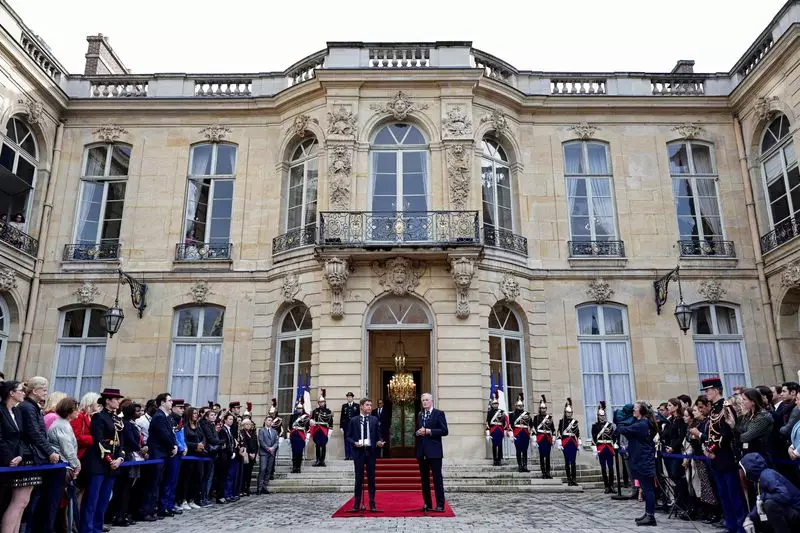France is facing a financial crisis that could potentially spiral out of control if extra savings are not found to reduce the public deficit. The European Commission has set a deadline of Sept. 20 for France to submit a plan to address this issue. However, the French government has requested an extension beyond this deadline to ensure coherence with its 2025 draft budget. This move comes as the country lurches deeper into a political crisis, with the threat of disciplinary proceedings from the EU looming large.
Prime Minister Michel Barnier, who was appointed after a two-month search by President Macron, is facing a daunting task in forming a new government and preparing a budget by Oct. 1. The pressure is mounting on him as the possibility of a parliamentary vote of no-confidence hangs over his head. The deteriorating finances have put him in a difficult position, forcing him to make tough choices between cutting spending, hiking taxes, or risking the credibility of France with its EU partners and financial markets.
The political landscape in France adds another layer of complexity to the situation. The leftist New Popular Front (NFP) alliance, along with the far-right National Rally (RN), hold a majority in parliament and could potentially collaborate to oust the prime minister through a no-confidence vote. The RN, in particular, has emerged as the de facto kingmaker for the new government, with leader Marine Le Pen laying out conditions for their support. This puts additional pressure on Barnier to navigate the political landscape carefully to ensure the stability of his government.
Marine Le Pen, speaking on behalf of the RN, has made it clear that the party expects the government to implement measures that respect the 11 million people who voted for them. This underscores the importance of accountability and transparency in the government’s actions moving forward. The French public will be closely watching to see how the government addresses the financial crisis and whether it prioritizes the interests of the people.
France’s request for an extension to reduce its public deficit reflects the challenging economic and political situation facing the country. Prime Minister Michel Barnier and his government must navigate these challenges carefully to restore stability and credibility. The role of political alliances adds another layer of complexity, highlighting the need for strategic decision-making and accountability in the government’s actions. As France moves forward, it must address these issues diligently to ensure a sustainable path towards economic recovery and political stability.

